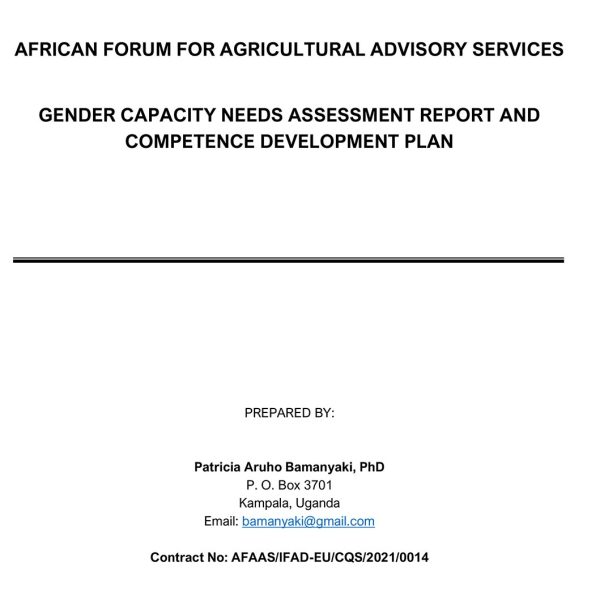This report presents the findings and analysis of a Gender Capacity Needs Assessment (GCNA) that was conducted for the African Forum for Agricultural Advisory Services (AFAAS) and its membership among Country Fora during the month of February 2022. The report also includes a Gender Competence Development Plan that draws from the findings of the GCNA to detail a 5-year roadmap to strengthen individual, organisational, and enabling environment capabilities to effectively deliver gender-responsive agricultural advisory services (AAS) in Africa.
BACKGROUND
AFAAS is a continental platform for mutual learning and innovation among agricultural extension and advisory service providers across Africa. The AFAAS goal is to enhance the utilisation of improved knowledge and innovations for improving productivity oriented towards individual and national development objectives. AFAAS operates through multistakeholder country and regional fora, which constitute public and private actors in national agricultural innovation systems. AFAAS ultimately targets smallholder farmers, many of whom constitute women and youth, who are worst hit by the threats of natural disasters, especially the effects of climate change and variability on agricultural productivity. In a bid to better address the needs of various actors in the agriculture value chain, AFAAS aims to enhance the competences of agricultural advisory service providers in all areas of their work, including the advancement of gender integration (or mainstreaming) as one of the priority areas of focus.
In 2015, AFAAS developed a 5-year Gender Mainstreaming Strategy 2015-2019 with the goal to “ensure that AFAAS achieves gender equality at all levels of the institutional framework and all stages of the programme cycle of its agricultural extension and advisory services [AEAS] mandate.” In accordance with this goal, the GCNA was therefore commissioned to understand the enabling environment, and establish the capacity of the organisation, staff, and selected network members to integrate gender equality in programs, projects, and operations.

